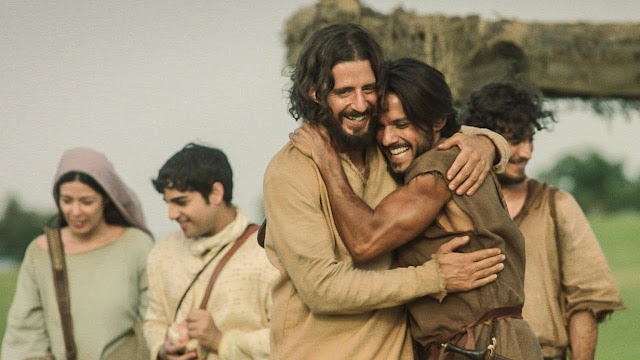SNEAK PEEK: 40-day The Chosen challenge (beginning the week of July 12)
“Where
& when are we?”
As Episode 1 of Season 1 begins, we find ourselves in the village of
Capernaum, on the western shores of the Lake of Galilee, located in northern
Palestine. The historical moment is the
early decades of the first century A.D. By
this time, Palestine had been the homeland of the Jews for over a millennium
and had been occupied by the Romans for about a century. The Roman Empire dominated the political and
economic systems of the entire Mediterranean world. The region around the eastern Mediterranean
had been “Hellenized” by Alexander the Great in the 4th century B.C.,
and the Romans took advantage of the unifying effect of Greek culture throughout
this area. The Jews were engaged in a
constant struggle to resist the pressure to assimilate to Hellenistic culture
and to maintain their distinct cultural and religious identity.
The context of 1st-century
Galilee is of course vastly different in many ways from that of 21st-century
Montreal. And yet, the issues of
nationalism, globalization, and friction between different social classes
haven’t changed that much in 2,000 years.
Questions of religious belief, and how they relate to matters of money, status,
and justice still preoccupy us. Tensions
between different cultural and linguistic groups and the struggle to maintain
local businesses in the face of global markets are things we know well.
One of the main economic activities in
Capernaum was fishing. In Episode 1, we are
introduced to two fishermen, Simon and his brother Andrew, as they try to
hustle Simon’s brother-in-law in a street fight. Simon and Andrew struggle to provide for
their families and keep up on their tax payments, all the while navigating the
tensions between the requirements of their Jewish faith and their need to operate
their business.
REFLECTION
SCENE: One evening,
at the local watering hole (“The Hammer”), Simon tells Andrew about the deal he
made with Quintus, the local Roman magistrate, to solve their tax-debt
problem. Simon agreed to report on
merchant fishermen who worked on “Shabbat”, the Jewish day of rest (Saturday). Since Jewish fishermen didn’t report their
catches taken on the Sabbath due to religious law, they didn’t pay the taxes on
those catches and thus deprived the Romans of their expected “cut” (something
Simon himself was guilty of). Quintus
agreed to wipe the slate clean for Simon and Andrew if Simon kept him informed
on the Shabbat activities of the local fishermen.
Life can
be complicated. Financial pressures may lead us to make
choices we wouldn’t make otherwise. It’s
sometimes tempting to treat our neighbours as a means to an end, rather than as
human beings facing the same challenges that we do. During the pandemic, many people reported
those who broke the COVID-19 rules to the police. What is the right thing to do in such
situations? Who would we be willing to
betray in order to make our own life easier?
Do we hold ourselves to the same standards that we set for others? Do we “cut deals” in our own minds, deals
that make us compromise our beliefs and cause us to become cynical about the
importance of values and ethics? What
are the long-term consequences of such behaviour? …for ourselves, for our families, for our
communities???




Comments
Post a Comment